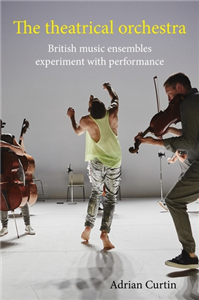Description
More Information
Rights Information
Albania, Algeria, Angola, Argentina, Armenia, Australia, Austria, Bahrain, Belgium, Belize, Benin, Bolivia, Bosnia and Herzegovina, Botswana, Brazil, Bulgaria, Burkina Faso, Burundi, Cameroon, Canada, Cape Verde, Central African Republic, Chad, Chile, China, Colombia, Comoros, Congo [DRC], Congo, Republic of the, Costa Rica, Ivory Coast, Croatia, Czech Republic, Denmark, Djibouti, Ecuador, Egypt, El Salvador, Equatorial Guinea, Eritrea, Estonia, Ethiopia, Faroe Islands, Finland, France, French Guiana, Gabon, Gambia, Georgia, Germany, Ghana, Greece, Guatemala, Guinea, Guinea-Bissau, Guyana, Honduras, Hongkong, Hungary, Iceland, India, Indonesia, Iran, Iraq, Ireland, Israel, Italy, Japan, Jordan, Kazakhstan, Kenya, Kuwait, Latvia, Lebanon, Lesotho, Liberia, Libya, Lithuania, Luxembourg, Macau, China, Macedonia [FYROM], Madagascar, Malawi, Malaysia, Mali, Malta, Mauritania, Mauritius, Mayotte, Mexico, Mongolia, Montenegro, Morocco, Mozambique, Namibia, Netherlands, New Zealand, Nicaragua, Niger, Nigeria, Norway, Oman, Pakistan, Panama, Paraguay, Peru, Philippines, Poland, Portugal, Puerto Rico, Qatar, Reunion, Romania, Russia, Rwanda, Saint Helena, Sao Tome and Principe, Saudi Arabia, Senegal, Serbia, Seychelles, Sierra Leone, Singapore, Slovakia, Slovenia, Somalia, South Africa, South Korea, Spain, Sri Lanka, Sudan, Suriname, Swaziland, Sweden, Switzerland, Syria, Taiwan, Tanzania, Thailand, Timor-Leste, Togo, Tokelau, Tunisia, Turkey, Uganda, Ukraine, United Arab Emirates, United Kingdom, United States, Uruguay, Venezuela, Vietnam, Western Sahara, Yemen, Zambia, Zimbabwe, South Sudan, Cyprus, Palestine, Bangladesh, Cambodia, Liechtenstein, Azerbaijan, Jamaica, Kyrgyzstan, Dominican Republic, Myanmar, Monaco
Endorsements
'An excellent guide to an innovative, new body of work that has so far largely escaped scholarly attention: theatrical performances by classical orchestras. Adrian Curtin has deftly woven together interviews with key players, audience reactions, background research and his own critical responses to numerous performances by a variety of mostly British ensembles to craft a highly informed, profoundly perceptive and personal book.' Björn Heile, Professor of Music (post-1900), University of Glasgow This book shows how theatrical approaches to presenting orchestral music can facilitate unique and powerful experiences for audiences, enable new interpretation of repertoire, and connect music-making to contemporary social issues and modes of thought. Orchestras are rethinking how they present music: attending to performance design, the creation of atmosphere, the configuration and choreography of bodies in space, audience experience, and the dramaturgy of the live event. They are collaborating in new ways with artists from other disciplines to create performances that challenge conventional understanding of the orchestra. This book focuses on the contribution of British music ensembles to these practices, analysing the theatrical aspects of their work in particular. It argues that increased attention to stagecraft along with cross-artform collaboration can reveal new aspects of orchestral music, allowing audiences to better appreciate its embodied, intersensorial qualities and narrative potential. The book delves deeply into performances presented by orchestras throughout the UK, examining the intersections between music and visuality, storytelling, physical movement, performance site, and audience immersion. The theatrical orchestra makes an eclectic set of innovative performances vivid for the reader and theorises their cultural significance.
Reviews
'An excellent guide to an innovative, new body of work that has so far largely escaped scholarly attention: theatrical performances by classical orchestras. Adrian Curtin has deftly woven together interviews with key players, audience reactions, background research and his own critical responses to numerous performances by a variety of mostly British ensembles to craft a highly informed, profoundly perceptive and personal book.' Björn Heile, Professor of Music (post-1900), University of Glasgow This book shows how theatrical approaches to presenting orchestral music can facilitate unique and powerful experiences for audiences, enable new interpretation of repertoire, and connect music-making to contemporary social issues and modes of thought. Orchestras are rethinking how they present music: attending to performance design, the creation of atmosphere, the configuration and choreography of bodies in space, audience experience, and the dramaturgy of the live event. They are collaborating in new ways with artists from other disciplines to create performances that challenge conventional understanding of the orchestra. This book focuses on the contribution of British music ensembles to these practices, analysing the theatrical aspects of their work in particular. It argues that increased attention to stagecraft along with cross-artform collaboration can reveal new aspects of orchestral music, allowing audiences to better appreciate its embodied, intersensorial qualities and narrative potential. The book delves deeply into performances presented by orchestras throughout the UK, examining the intersections between music and visuality, storytelling, physical movement, performance site, and audience immersion. The theatrical orchestra makes an eclectic set of innovative performances vivid for the reader and theorises their cultural significance.
Author Biography
Adrian Curtin is Associate Professor in Drama at the University of Exeter
Manchester University Press
Manchester University Press is a leading UK publisher known for excellent research in the humanities and social sciences.
View all titlesBibliographic Information
- Publisher Manchester University Press
- Publication Date April 2025
- Orginal LanguageEnglish
- ISBN/Identifier 9781526177629 / 1526177625
- Publication Country or regionUnited Kingdom
- FormatPrint PDF
- Pages328
- ReadershipGeneral/trade
- Publish StatusPublished
- Dimensions234 X 156 mm
- Biblio NotesDerived from Proprietary 6200
- Reference Code16378
Manchester University Press has chosen to review this offer before it proceeds.
You will receive an email update that will bring you back to complete the process.
You can also check the status in the My Offers area

Please wait while the payment is being prepared.
Do not close this window.



